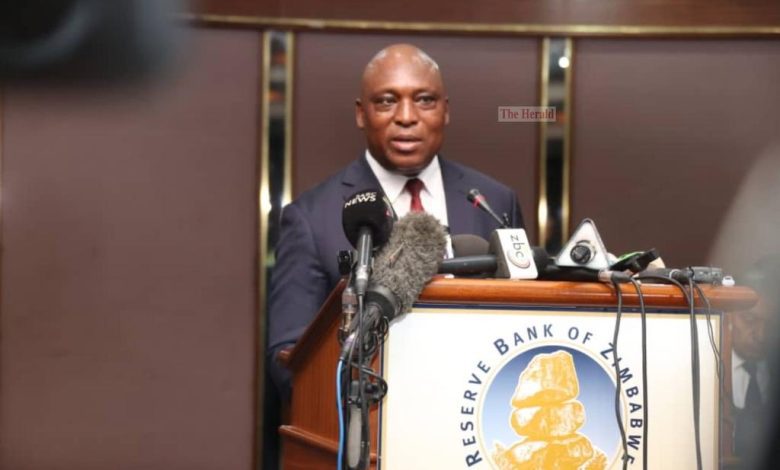Free loanable funds through unwinding positions, banks urged
At the recent 2025 Monetary Policy Statement presentation, Reserve Bank of Zimbabwe (RBZ) Governor, Dr John Mushayavanhu, advised banks to unwind some investment positions to free up loanable funds.
His remarks, intended to dispel concerns over a liquidity crunch, have now sparked a spirited response from Lawrence Nyazema, president of the Banking Association of Zimbabwe (BAZ), who warned that banks must maintain a strict separation between customer deposits and proprietary capital investments.
At the presentation, Dr Mushayavanhu emphasised the robustness of Zimbabwe’s financial reserves.
“So, we have maintained reserve money at below 4 billion ZiG,” he declared, adding that the market currently hosts around “12,4 billion, roughly let us just say 12 billion ZiG in the market.”
He explained that these deposits are supported by a reserve portfolio comprising gold, foreign currency and mineral assets, which, when converted, they total approximately 14,4 billion ZiG.
“Now, if you do your simple maths, you divide the reserves by total deposits, you will get an implied rate of 22.
“In other words, what that is telling you is that if we were to buy back all the ZiG that is in the market using the reserves that we have got, we should be able to do that at an exchange rate of 22,” he added.
This calculation was offered as a reassurance that, despite any perceived liquidity crunch, the central bank’s balance sheet remains more than adequate to support market stability.
Dr Mushayavanhu’s message was clear, banks should not claim a liquidity shortage, but rather unwind the positions they are in to liberate funds for lending.
According to him, such an approach would help ensure that the financial system operates efficiently and that banks do not unnecessarily hoard assets that could be deployed to stimulate economic growth.
However, Nyazema on the sidelines of the presentation quickly countered this view.
“Well, the way I look at it is I always separate deposits that come from the public and banks on capital,” Nyazema said.
He argued that banks must exercise caution by safeguarding customer deposits rather than leveraging them for investments.
“So, if you look at a bank like ours, we have got capital of more than US$200 million.
“So, if we take US$10 million out of that US$200 million and we invest it in a building, that should not be problematic. But if I have got half a billion in customer deposits and then I take US$10 million from the customer deposits and I go and invest in a building, I will get stuck should there be a demand by depositors who want their money back,” he said.-ebsienssweekl









